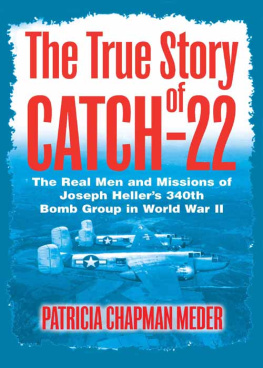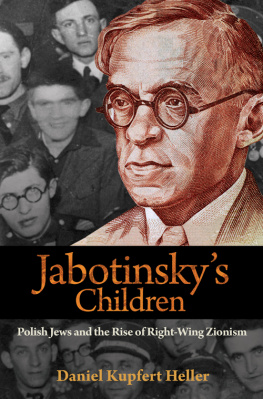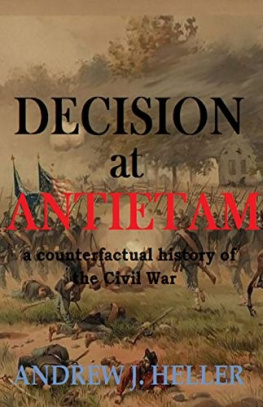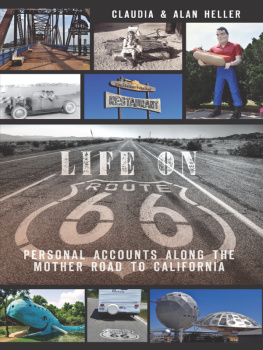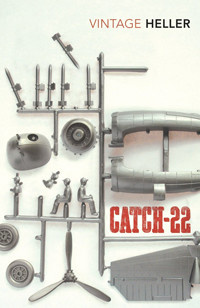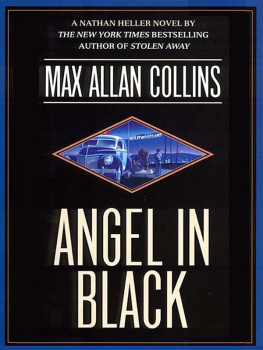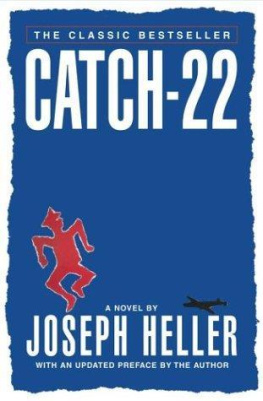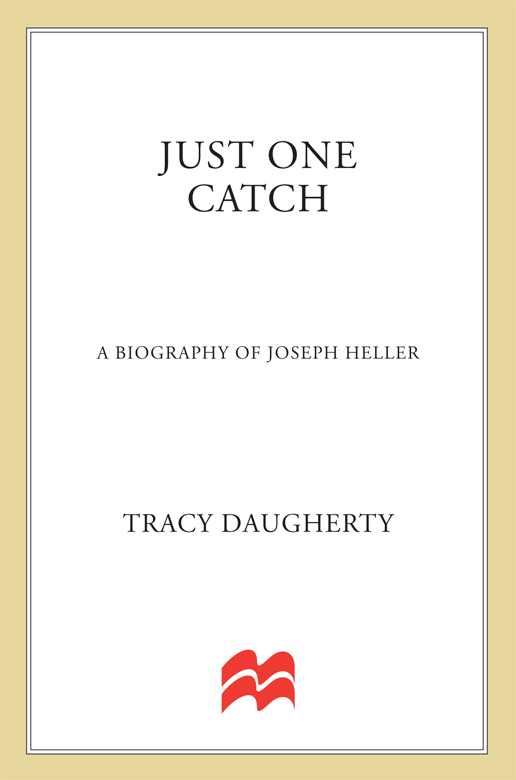

F or my family, now and then and to come:
May the generations be blessed
Y ou cant keep ducking forever.
I can till I die.
J OSEPH H ELLER , Something Happened
I am not yet able to know myself; so it seems to me ridiculous, not yet knowing this, to investigate alien matters.
S OCRATES , P LATO , Phaedrus
I t is impossible to predict or control how you will be remembered after your death. In that way, dying is like having children: you never know what will come out. In Becketts Endgame, he asks his parents, in effect, Why did you have me? and the father replies, We didnt know it would be you.
J OSEPH H ELLER , 1975
CONTENTS
PROLOGUE Yo-Yo
WHAT IS MISSING in the moment he will return to, in memory and in writing, for the rest of his life is his sense of himself. The moment is simultaneously brief and prolonged, distorted first by adrenaline, later by the vagaries of memory. And it is dangerous. In his maturity, he will concede that most of us are never more conscious of the pulse in our wrists and the thrumming in our minds than in threatening circumstances. When faced with physical harm or the possibility of sudden extinction, our senses rouse themselves and life becomes both dreamlike (the minutes stretched by an uncanny feeling of moving in slow motion) and wrenchingly vivid (each small gesture an agony of air against skin). But now, in the nose of the thin aluminum plane, as metal, glass, and his teeth rattle to the point of tearing loose, nothing is clear, least of all a fleeting, time-dependent I .
Here is what seemed certain just before he crawled into the transparent womb at the front of the B-25. It was August 15, 1944. He was about to fly his second mission of the day. Earlier, he and the rest of his crew had been ordered to attack enemy gun positions at Pointe des Issambres, near Saint-Tropez, France, but heavy cloud formations had prevented them from dropping their bombs. According to military reports, flak cover at the target was [h]eavy, intense and accurate.
Just one week earlier over Avignon, on the morning of August 8, he had witnessed flak bursts cripple a bomber. I was in the leading flight, he recalled, and when I looked back to see how the others were doing, I saw one plane pulling up above and away from the others, a wing on fire beneath a tremendous, soaring plume of orange flame. I saw a parachute billow open, then another, then one more before the plane began spiraling downward, and that was all. Two men died.
Now, on this follow-up mission a week later, the goal was to destroy the Avignon railroad bridges on the Rhne River. It was his thirty-seventh assignment overall, since the end of May, when he had first been stationed at the Alesan Air Field on the island of Corsica, west of Italy.
As he had done thirty-six times before, he took a last pee by the side of the runway (there were no bathrooms aboard the B-25), then slid down the narrow tunnel beneath the cockpit to the bombers Plexiglas nose cone. The tunnel was too small for a man wearing bulky equipment; he was forced to park his parachute in the navigators area behind him. Up front, in the glass bowl (the crew called it the hothouse), he always felt vulnerable and exposed. He found his chair. He donned his headset intercom so he could talk to comrades he could no longer see in other parts of the plane. The wheels left the ground. Now he was alone, in a blur of blue.
As his squadron began its approach to the Rhne, German antiaircraft guns let loose and flak filled the air. A bomber in another squadron got holed. A spark, a flash. The plane lost a wing. It dived. No parachutes.
Hurtling through space, the man in the glass cone watched the shining metal fall. A minute later, he was steering his plane. His pilot and the copilot had taken their hands off the flight controls. It was time for him to drop his bombs, and so, to assure a steady approach to the target, he commanded the planes movements using the automatic bombsight, steering left, steering right. For about sixty seconds, no evasive action would be possible, just a sure zeroing in.
Almost. Almost. There. He squeezed the toggle switch that released the bombs. Immediately, his pilot, Lt. John B. Rome, banked up, away from the target. Rome, twenty, was one of the youngest pilots in the squadron, with little combat experience. The copilot, fearing this green kid was moving too fast and about to stall the engines, seized the controls, and the plane went into a sudden steep dive, back to an altitude where it could be holed by curtains of flak.
In the nose cone, the man who had overseen the bombs slammed into the roof of his compartment. His headset jack pulled loose from its outlet and began whipping about his head. He heard nothing. He couldnt move. I believed with all my heart and quaking soul that my life was ending and that we were going down, like the plane on fire I had witnessed plummeting only a few minutes before, he remembered. I had no time for anything but terror.
Just as quickly as it had begun its descent, the plane shot upward, away from the flak, one moment yo-yoing into the next: a vanishing yet interminable instant. Now he was pinned to the floor, looking for a handhold, anything to grasp. The silence was horrifying. Was he the only crewman left alive? Was he alive? Would this moment never end, or had everything already ceased?
He noticed the jack to his headset lying free near his chair. He plugged himself back in and a roar of voices pierced his ears. The bombardier doesnt answer, he heard someone shout. Help him, help the bombardier. Im the bombardier, he said, and Im all right, but the very act of asserting what should have been obvious made him wonder if it was true.
* * *
TWENTY-TWO YEARS LATER , is it the same self that walks the hills of Corsica, looking for traces of the young man he was, when, as a second lieutenant, he flew sixty bombing missions between May and October 1944looking, so he can write about his wartime experiences, as he has before and as he will do again?
He is, a taxi driver tells him, the first American from the old Alesan Air Field ever to return here. To celebrate his reverence for the past, the driver arranges a meal for him and his family in a local restaurant with something that resembles pan-broiled veal but is probably goat, with bread and cheese and wine. His wife and children, a ten-year-old boy and a fourteen-year-old girl, tolerate his nostalgia with gentle, mostly indulgent irritation. Be nice to daddy, the girl tells her brother. Hes trying to recapture his youth. Of course shes right, he thinks, and he feels stupendously foolish. I [have] come to the wrong place, he tells himself. My war [is] over and gone.
The only remaining evidence of his bombing missions, at least that he can find as he travels, is a hole in a mountain near Poggibonsi. The mountain was not the target. That day, nervous, his attention driftingthere had been no flak, no dangerhe had released his bombs a second or two too late (he remembers this clearly) and blasted the side of the mountain instead of the railroad bridge he was supposed to blow apart. The bridge, hit by other planes that day, has long since been repaired, and looks better than ever.
Time yo-yos back and forth as he crosses green fields with his wife and kids: on the one hand, its as though certain events never occurred, and then, just as he is wondering if a bombardier with his name and face ever really came to Corsica, he encounters a Frenchman on a Swiss train, a train he has decided to take after giving up touring old battlefields, where the past has been erased like the bounty of annual harvests. And it is here, where he least expects it, that the ghost of an old self returns, as indistinct yet insistent as a reflection of his features in the window of the train.


